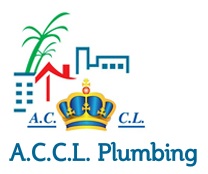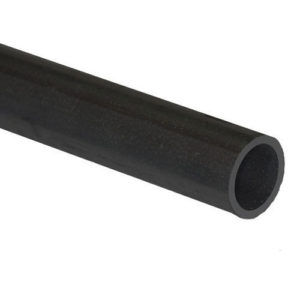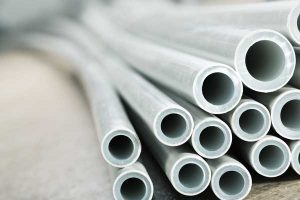The differences between PVC and ABS Pipes
For a lot of reasons plumbers and homeowners tend to use plastic pipes in their plumbing projects. Plastic pipes are inexpensive, lightweight, and will not corrode. They also do not collect condensation from cold water and are great at keeping hot water hot. Plastic pipes are not all the same! The most common plastic pipe materials are Poly Vinyl Chloride (PVC) and Acrylonitrile Butadiene Styrene (ABS). In this article ACCL Plumbing will go over the several differences between ABS and PVC pipes so you can learn what the best material will be for your next plumbing project!
Differences:
A very simple way to tell PVC and ABS apart is the color of the pipe. ABS is black, and PVC is white. The difference between these pipes are either minor or situational but one is more likely to stand out to homeowners! ABS pipes are made with BPA while PVC is not.
Bisphenol A (BPA): BPA is a chemical commonly used to harden plastics and can be found in all sorts of plastic materials such as water bottles and food containers. The government of Ontario and the FDA have found no evidence that BPA poses a risk to humans
Poly Vinyl Chloride (PVC) Pipes: PVC pipes are more flexible then ABS. They have a two-step process for connecting pipes. PVC pipes must first be treated with a purple primer before cement can be applied. The purple primer can be messy and will have to fully dry before continuing to the next step of adding the cement (because of this installing PVC pipes can add extra labor to a project).
Acrylonitrile Butadiene Styrene (ABS) Pipes: ABS pipes are a lot stronger and shock resistant when compared to PVC pipes. ABS is also better at handling severely cold temperatures. While PVC pipes have a two-step process for connecting pipes ABS pipes have a one-step process allowing them to be bonded instantly with a special cement.
These two different types of pipes are priced similarly. The biggest difference when working with ABS and PVC pipes is the process for connecting pipes. ABS having a one-step process and PVC having a two-step process. Because PVC has a two-step process it requires more labor which could result in a more expensive project.
Checking the Code:
Before making the decision to choose ABS or PVC pipes you should check with your local government to insure the decision hasn’t been already made for you. Some building codes mandate the use of one type of pipe over the other.
Have Questions about which pipe is best suited for your project?
Let the licensed plumbers at ACCL Plumbing tackle the job for you:
Accl Plumbing offers repair and replacement services. We would be pleased to develop a guaranteed unique solution to keep your frozen pipes, cleanouts, sewer blockages, clogged drains, burst pipes, broken water heater or over flowing toilets, free of any obstructions. We can help. Call 1(905) 448-5909 or visit our contact page to drop us a message http://acclplumbing.com/contact-us/



